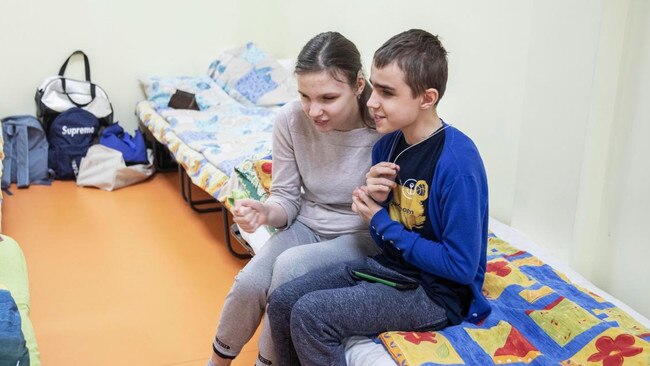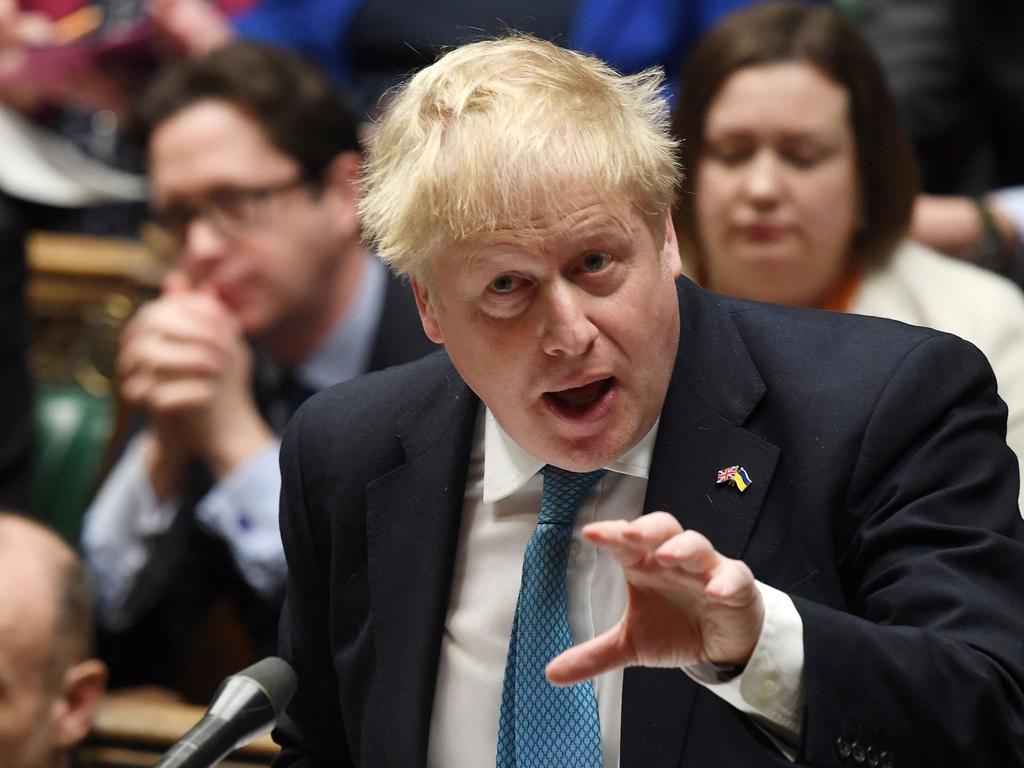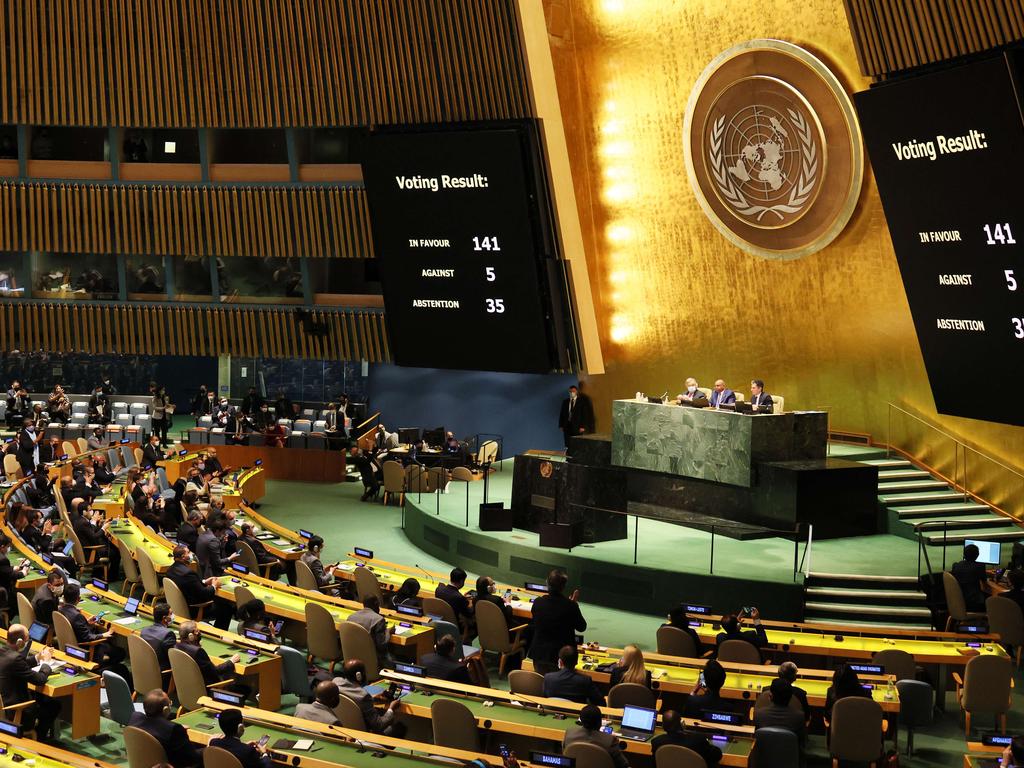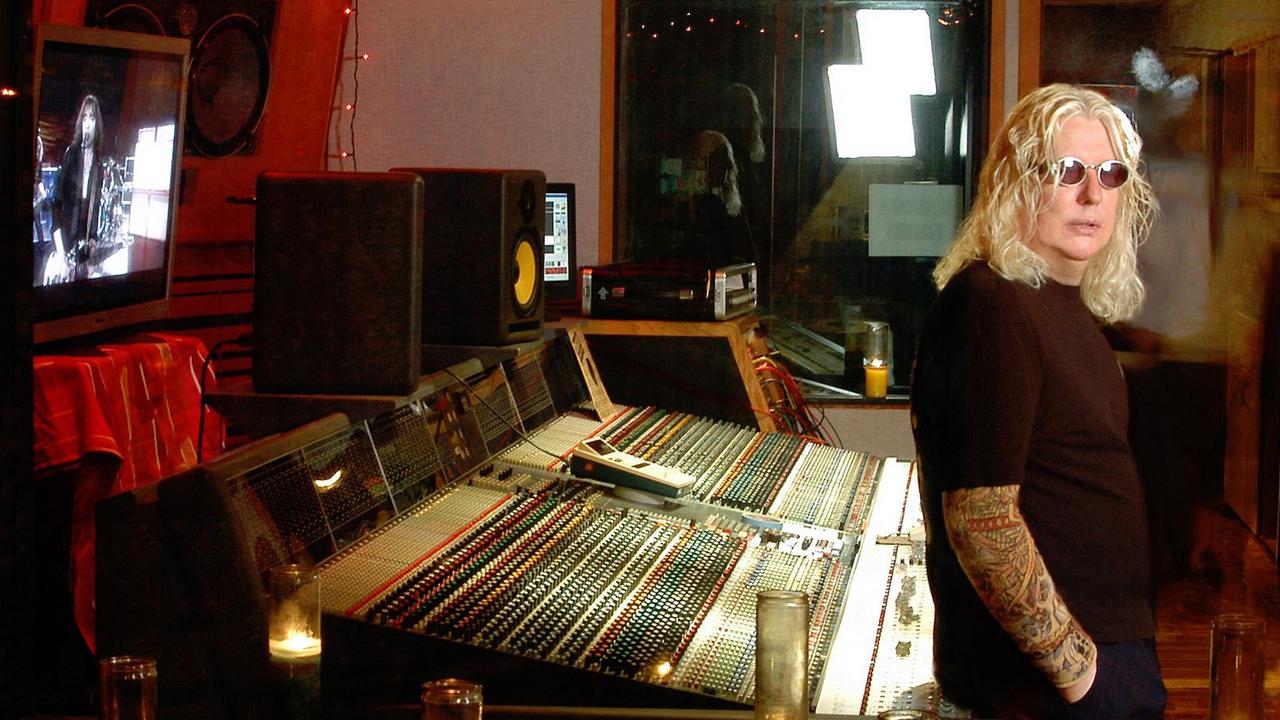Led by strangers through the noise of war, a blind boy awaits his mother
In a makeshift refuge for fleeing children, 14-year-old Boris must put his faith entirely in others.

Boris’s war is one of total darkness. It began with the sound of distant shellfire and the voices of his schoolteachers in Kharkiv urging him to pack a bag of his most treasured belongings and get ready to leave.
The 14-year-old never saw a soldier or a jet; never witnessed the choked roads or railway stations packed with civilians fleeing the Russian assault. Instead, the war propelled him on a journey without his mother and little hope of reaching home, guided by strange voices, sudden sounds, the sense of displacement and disorientation, without a single glimmer of light. He has been blind since birth.
“The first day was the worst,” he said on Wednesday, at an improvised transit shelter for displaced children at the small town of Voloske in eastern Ukraine. “I called my mum as soon as the teachers said that war had begun, and the Russians were coming. I knew she wouldn’t be able to make it as she was far away.
“She told me to be calm, that she would get someone to grab me. I could hear the sound of shelling. My teachers sounded afraid. I’ve been a little scared every day since. It’s hard to keep moving through unfamiliar places when you can’t see. But nothing has been as scary as when it began.”
I met Boris, a slender boy of remarkable calm, in the gym of a schoolhouse building, where an Orthodox priest was looking after vulnerable children driven from their homes by fighting since Russia launched its invasion of Ukraine last week.
The fate of every child there seemed totemic of war’s injustice. A bus filled with 60 orphans from Mariupol, the coastal city under assault from Russian forces to the southeast, stood stationary at the schoolhouse gates, prevented from leaving to escape westwards because one of the orphans, a traumatised teenager, had gone missing.
In a room inside the building a foster mother, looking after her seven children between six and 16 years old, suddenly burst into tears, apologising as she did so. “The stress, the stress,” she murmured, as if any explanation were necessary.
Yet among all those there, the innocent dispossessed, it seemed that the blind boy so far from home, for all his composure and cool demeanour, was loneliest. Boris did not even have a certain escape route.
“I called my mum last night before the phone signal went,” he said. “She’s surrounded by Russians in Mariupol. There was the noise of shelling on the phone. She told me to be brave and stay where I am. At least there is no shelling here. She said she would try to reach me somehow. I’ll wait here until she makes it.”
Boris, who was born in Mariupol but who goes to a specialist school in Kharkiv, 420km north of his home, found a happenstance saviour in a 60-year-old woman named Yelena. She had a granddaughter, Nastiya, 12, boarding at the blind school with him.
Responding to a frantic phone call from the boy’s mother in Mariupol, Yelena managed to reach Kharkiv, which is under heavy attack by Russian airborne units, and then headed southwards with both children towards Mariupol.
Yet before she could reach the coastal city another Russian assault surrounded Mariupol, cutting the children off from the chance of being reunited with their parents. Along the way they found shelter instead with Father Andriy Pinchuk, who had transformed the schoolhouse at Voloske into a refuge for displaced children.
“At least Nastiya has me with her,” said Yelena, who preferred to withhold the children’s surnames and her own for fear of reprisal, as she guided the two blind children through the school’s alien surroundings. “Boris has no one. He managed to speak to his mother a few times by phone before the signal went. Now we are waiting here just to see what happens. We may have to escape again.”
Other children in the sanctuary had fled in similar haste.
The foster mother who wept, Galina, 40, told me she gave her seven wards of care only an hour to pack their things after Russian shells had crashed into the eastern Ukrainian city of Sloviansk where they lived. She described how she had instructed each child to take a small bag with their most precious toy, warmest coat, a change of clothes and a favourite mug, and to leave the rest of their things behind.
“We could hear the shelling. Some of the children started shaking. We had to decide what to do very quickly,” she said, exhausted. “I explained to the children that a bigger war had begun, and that we had to run somewhere safe. I said it wasn’t the time to think about ‘things’, and that it was the time to forget about possessions and look after our lives.”
Anger was present there too. It emanated from the priest. Pinchuk was a member of the Russian Orthodox Church, whose leader in Moscow has stayed silent throughout the invasion. This has caused a growing wave of dissent among his priests in Ukraine.
“Patriarch Kirill feels less like a father to us in all this than a stepfather, or worse,” Pinchuk said. “Why is he so silent? Is he too afraid to speak out against the invasion? As a priest, my place is rightfully to be among those who suffer, but I am angry at the lack of condemnation for this attack from my patriarch in Moscow.”
Yet among the dispossessed children and their carers, forced from their homes and separated from their families as part of a growing exodus, there was neither time nor inclination to judge the responsibilities of men in positions of power.
“The only question we have right now is ‘when will this end?’,” Yelena said as she gathered the two blind children to her. “It is terrifying. We have no way of knowing where next to go, and cannot reach our homes. Our only relief, for the time being at least, is that in this place these children cannot hear the noises of war. But we fear even that will change.”
THE TIMES







To join the conversation, please log in. Don't have an account? Register
Join the conversation, you are commenting as Logout